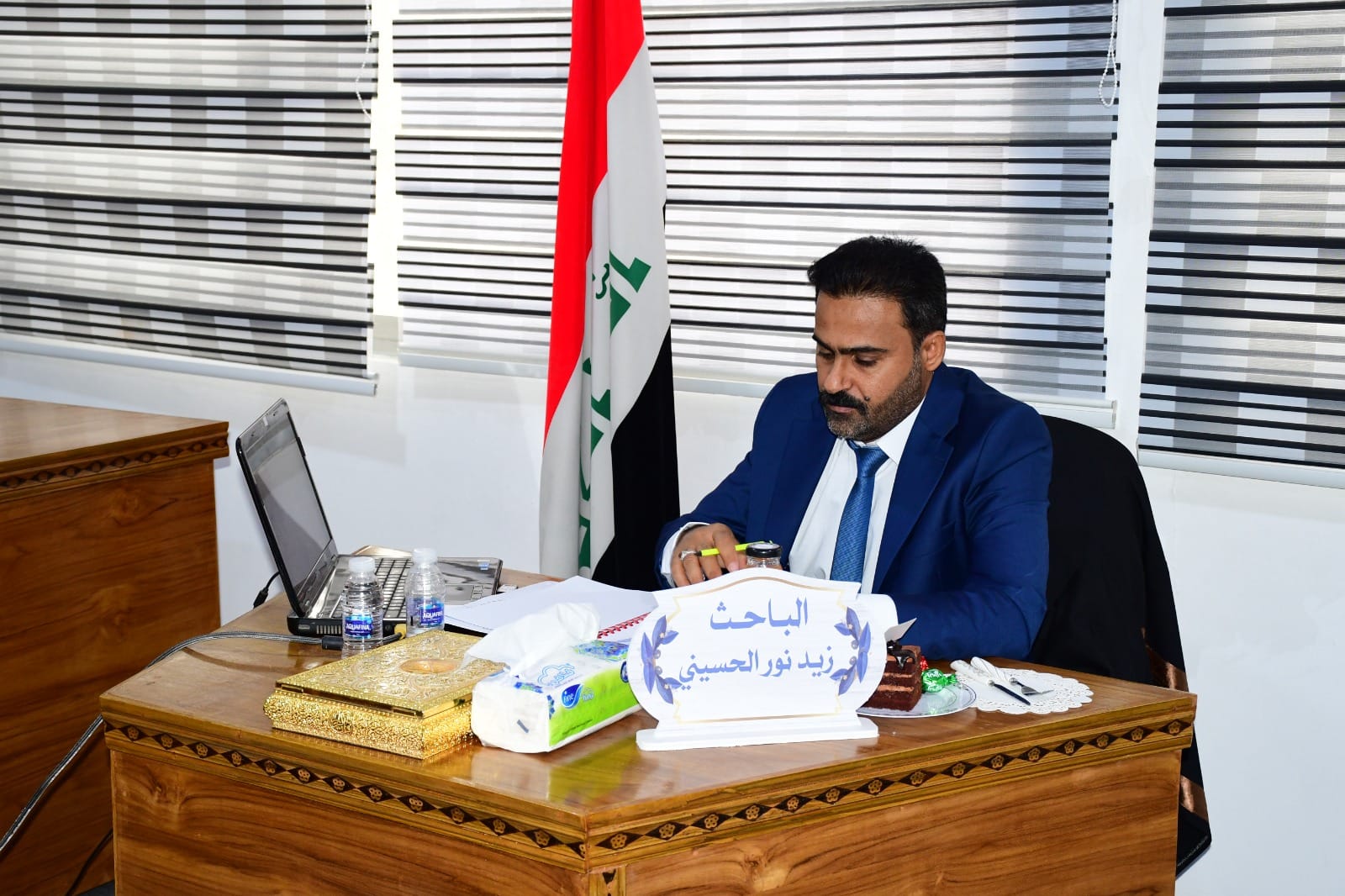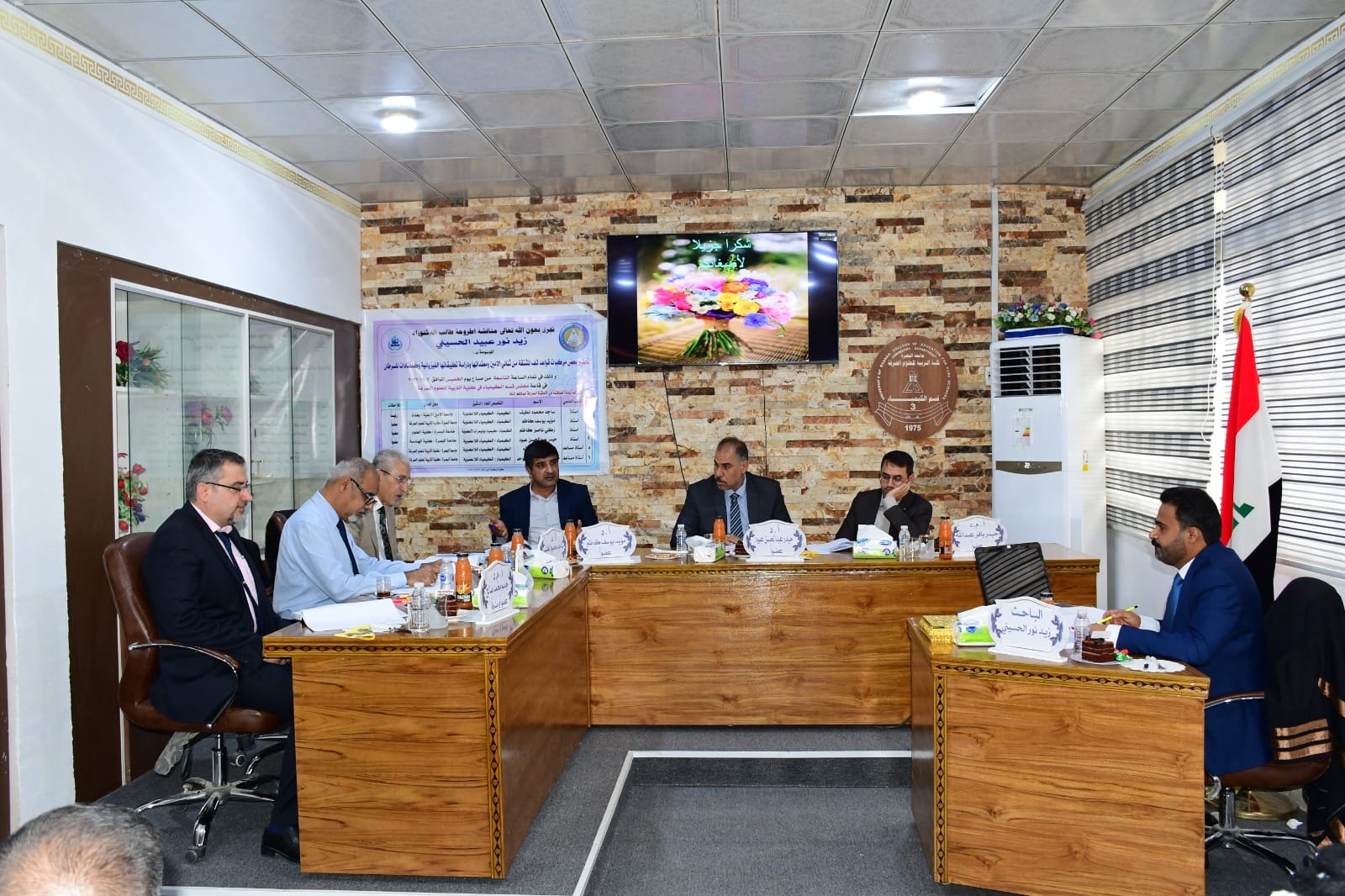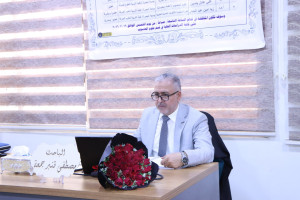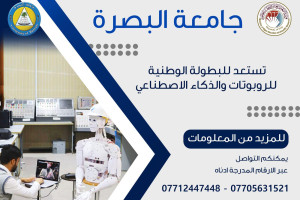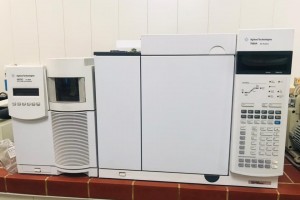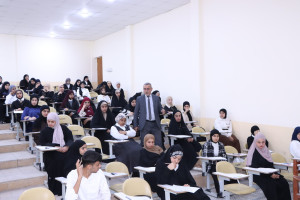
The College of Education for Pure Sciences in the Department of Chemistry discussed a doctoral thesis on the preparation of some Schiff bases derived from diamines and their complexes and studying them as anti-cancer agents.
The thesis presented by the researcher (Zaid Nour Obaid) included:
The study prepared four organic ligands under study from a Schiff base, two of which were derived from aldehyde (Pyrrole-2-carboxaldehyde) and two of which were derived from aldehyde (thiophene-2-carboxaldehyde). A number of analytical and diagnostic devices were used, most notably (mass spectrometry, resonance spectra). Proton nuclear magnetic resonance 1H-NMR, 13C-NMR spectra, FT-IR infrared spectroscopy, Visible-UV and thermogravimetric analysis (TG) were used to confirm the authenticity of the prepared organic ligands. A number of metal complexes were prepared from them. With the metal ions chromium (III), manganese (II), cobalt (II), nickel (II), copper (II), zinc (II). All complexes were diagnosed using the aforementioned analytical devices for some of the prepared metal complexes, and it is necessary to study the sensitivity. Magnetism and molar conductivity of metal complexes dissolved in ethanol at a concentration of 3-10 x 1 molar and at laboratory temperature. At the end of the research, we conducted biological and toxicological tests for the complexes [Mn(L1)] Cl2 and Cl2.H20 [Ni(L3)] on human cell lines infected with cancer. Liver and esophageal cancer, and other natural ones taken from humans. The results showed that the two complexes in this study have very high selectivity in fighting cancer cells and do not affect healthy, uninfected cells. Accordingly, the two complexes are a new treatment for fighting liver cancer cell lines and esophageal cancer with high selectivity. .
